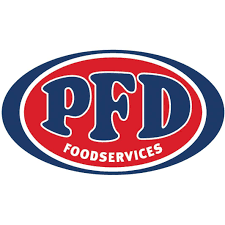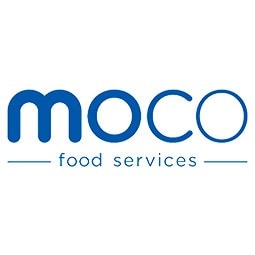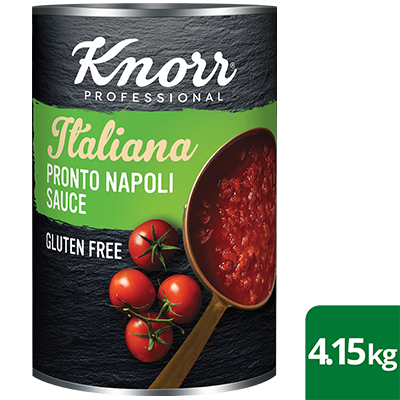Posted on Monday, 24th February, 2020
At the end of 2019 we attended the Lantern Conference for Nutrition and Food in Aged Care. The conference is run by The Lantern Project and featured 14 speakers from the Aged Care industry.
The Lantern Project was founded by Dr Cherie Hugo in 2013 when she saw an urgent need to improve the standard of food in Aged Care. With over 20 years of experience as an Accredited Practising Dietician, Dr Hugo has brought together industry experts, chefs and other Aged Care staff to help each other overcome the challenges to improve food and food service for the elderly.
The 2019 Conference, held on the Gold Coast at the beginning of December, was a rich mix of expertise, innovation, practical solutions and crowd-sourced brainstorming, resulting in an inspiring, thought-provoking day for attendees, speakers and organisers alike.
Here are our top takeaways from the 2019 Lantern Conference:

Aged Care is undergoing a shift as the industry experiences significant growth as well as the implementation of the new Aged Care Standards. When combined with higher customer expectations, many Aged Care facilities have come up with creative and effective ways to meet the challenges associated with these changes.
As the industry evolves, the areas of food, health and clinical care for the elderly in Aged Care facilities are becoming much more integrated. Residents are treated more as customers, rather than patients who are being ‘treated for old age’.
The focus on dignity, respect and choice has reframed the way food service staff create, serve and plan food for their residents.
Advances have been made in the areas of dining for dementia residents, texture modification, further understanding of dysphagia as well as a big shift towards hotel or restaurant style service at mealtimes.


Regardless of the topic being discussed, the need for staff training was consistently emphasised. The lack of relevant, affordable training and resources is a challenge for the whole industry.
At the cutting edge of training, PK Breville, a visiting speaker from the US and an expert in dementia, has developed a Virtual Dementia Tour which gives people a first-hand experience of the challenges a dementia resident faces each day. The virtual experience helps carers develop new ways of catering for the needs of dementia residents based on first-hand experience. Find out more about PK’s Virtual Dementia Tours here.
On the other end of the scale, one group of people where training can really benefit Aged Care facilities is volunteer carers who, while they have good intentions, are not given any specialised training to help them assist the people they are helping.
Most people at the conference agreed the Aged Care sector requires training which is:
- Relevant to Aged Care
- Up to date with the latest legislation and standards
- Consistent with audit requirements
- Located centrally so it is easy to find
- Cost-effective
- Time-effective


One of the bigger challenges for Aged Care is the inconsistency of standards with which a facility is audited. As the new Aged Care Standards are integrated and unannounced audits become normal, Aged Care facilities are navigating the line between satisfying the audit criteria and providing the right level of food, nutrition and service to their residents.
The issue is twofold.
1. Audits are inconsistent.
As the new Aged Care Standards are integrated, and unannounced audits become normal, Aged Care staff are finding inconsistencies in the food safety standards they are being audited on – food safety standards often do not include specific information about Aged Care and can in fact be counter to the needs of the elderly.
While it is possible to challenge an audit, it is time-consuming and therefore ineffective.
2. Choice versus risk
Customer choice is a big part of the new Aged Care Standards where empowering residents to be an active participant in their daily lives, as well as personal and clinical care is a key element.
This is particularly relevant to food in Aged Care as this is an area where choice can easily be exercised, but the risks are often the highest. Residents on a texture-modified diet who wish to eat food at an unsuitable texture level is a common situation food service staff have to navigate.
Creating a consistent excellence rating and targeted support which has been mapped to the new Aged Care Standards is what has inspired the development of The Lantern Project’s innovative Epicure tool. Due for release in the first quarter of 2020, the program aims to simplify nutrition and the dining experience to help Aged Care food service providers raise the quality of care in their facilities.
Food in Aged Care will remain in the spotlight in 2020, and organisations such as The Lantern Project will continue to strive towards helping Aged Care facilities provide exceptional service to their residents.
Disclaimer: The content of this article is created for inspiration purposes only. It is not intended as clinical, medical or nutritional advice.
Related Articles
Top recipes
-
Chicken Mornay Lasagne -
Chicken Ratatouille -
Stir Fried Chicken with Honey Soy and Asian Greens -
Minestrone Soup -
Mushroom Parmigiana with Bocconcini, Pesto -
Chicken Gumbo Pie and Corn Biscuits -
Creamy Tuna and Tomato Vol au Vents -
OP Rib Steak, Rocket Fuel Pepper Sauce, Corn Puree -
Slow Cooked Lamb Shoulder with Korma Sauce -
Korma Cauliflower Soup
Related Products
Log in or Create an account to access:
- Get access to this content
- Discover the latest culinary trends
- Explore and save your favourite recipes
- Watch free video training courses for chefs
























